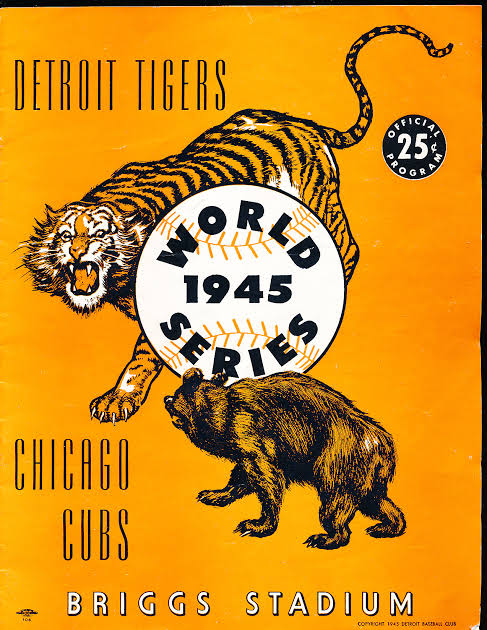The Pittsburgh Press (October 1, 1945)

Cubs favored 7-5 to win opener
Borowy, Newhouser named as starters for Wednesday game
DETROIT (UP) – Jolly Cholly Grimm headed for Detroit with his banjo on his knee today, playing a World Series sonata that had a former American League pitcher tuning up for a lead role in his Chicago Cub championship symphony.
And one year late, after blowing the 1944 pennant in the rival American League, Steve O’Neill was leading his Detroit Tigers home, figuring that his Peck’s bad boy, Hal Newhouser, would strike a sour note in the symphony when they clash Wednesday in the opener of baseball’s first post-war classic.
The odd makers figured that Grimm’s tune would be the best for they made the Cubs 7-5 to win the first game and 2½-1 to win the series.
Wins on final day
But O’Neill was looking beyond those odds with the satisfaction of knowing that he had a clutch ball club – one that came through on the final day of the season this year whereas in 1944 it lost its closing game and lost the pennant to the St. Louis Browns.
So he decided that Newhouser, who had been his clutch man all year long, would be his pitcher for Wednesday’s opener. Hs record – 25 victories against only nine defeats – was enough to win O’Neill’s confidence.
Hank Borowy, who won 11 games for the Cubs this season, will start for the National League champions against Detroit.
Pitches Cubs to pennant
Borowy, 27-year-old righthander, was credited with pitching the Cubs to their 16th pennant in National League history. Sold by the New York Yankees to the Cubs late in July, he won his 11 victories in the brief span of 64 days. He won a total of 21 games for the 1945 season, having won 10 and lost five with the Yankees before going to the Cubs.
Borowy lost two games in the National League for a total of seven defeats.
Borowy, several weeks ago, said he wanted to pitch against the Tigers in the series because “I always have luck against them.”
Tigers weary
The Cubs are in all-around better shape than the worn and weary Tigers. Three of the Tigers’ big guns, Second Baseman Eddie Mayo, hard-hitting Hank Greenberg and Pitcher Dizzy Trout have been hampered with injuries and may not be at their best for the series.
All tickets for the first three games here and the remaining ones in the best four-out-of-seven series, which will be necessary at Chicago, have been sold out.
After their game with the Pirates yesterday, the Cubs first went to Chicago to get their World Series uniforms and then headed for Detroit. The Tigers returned from St. Louis today.
